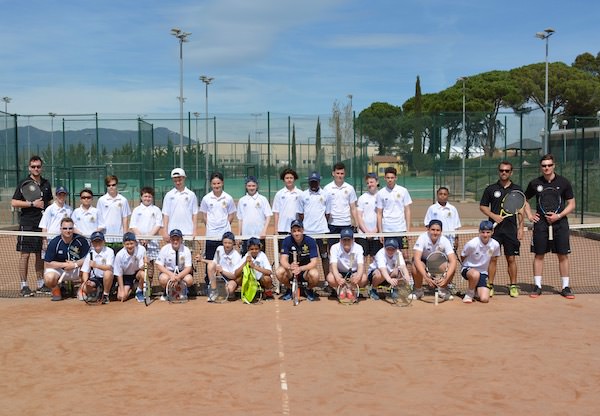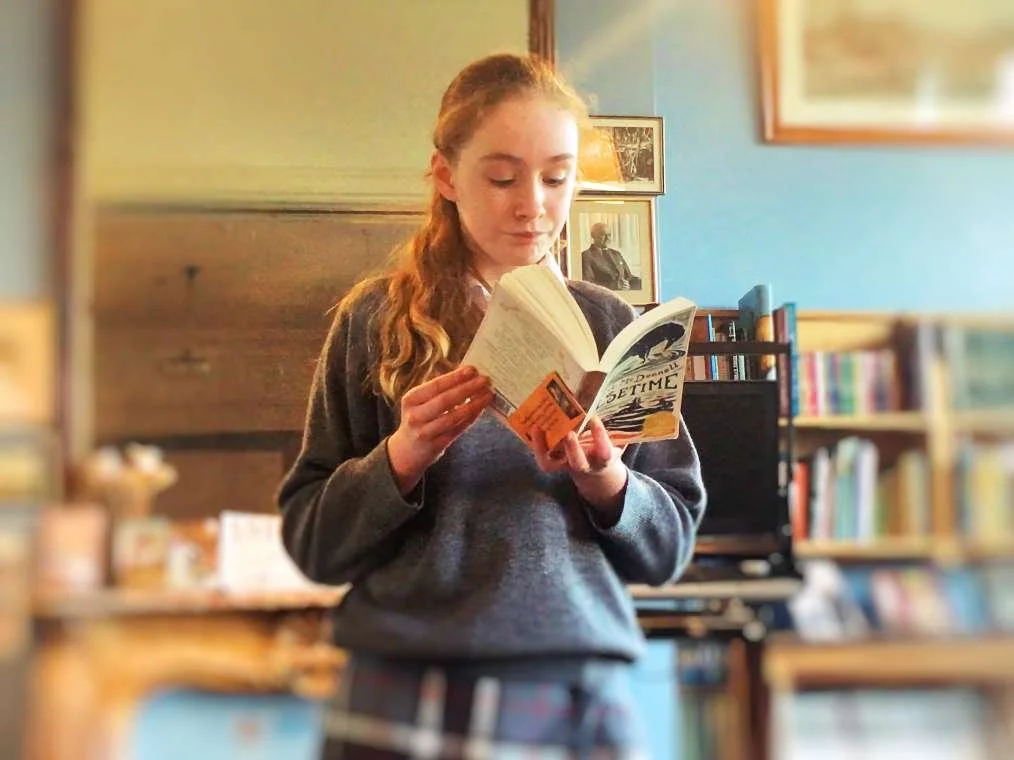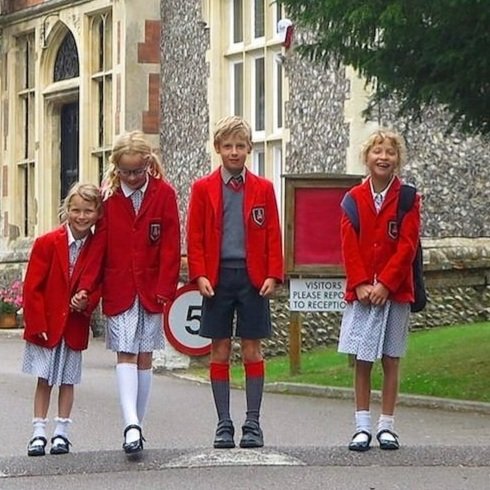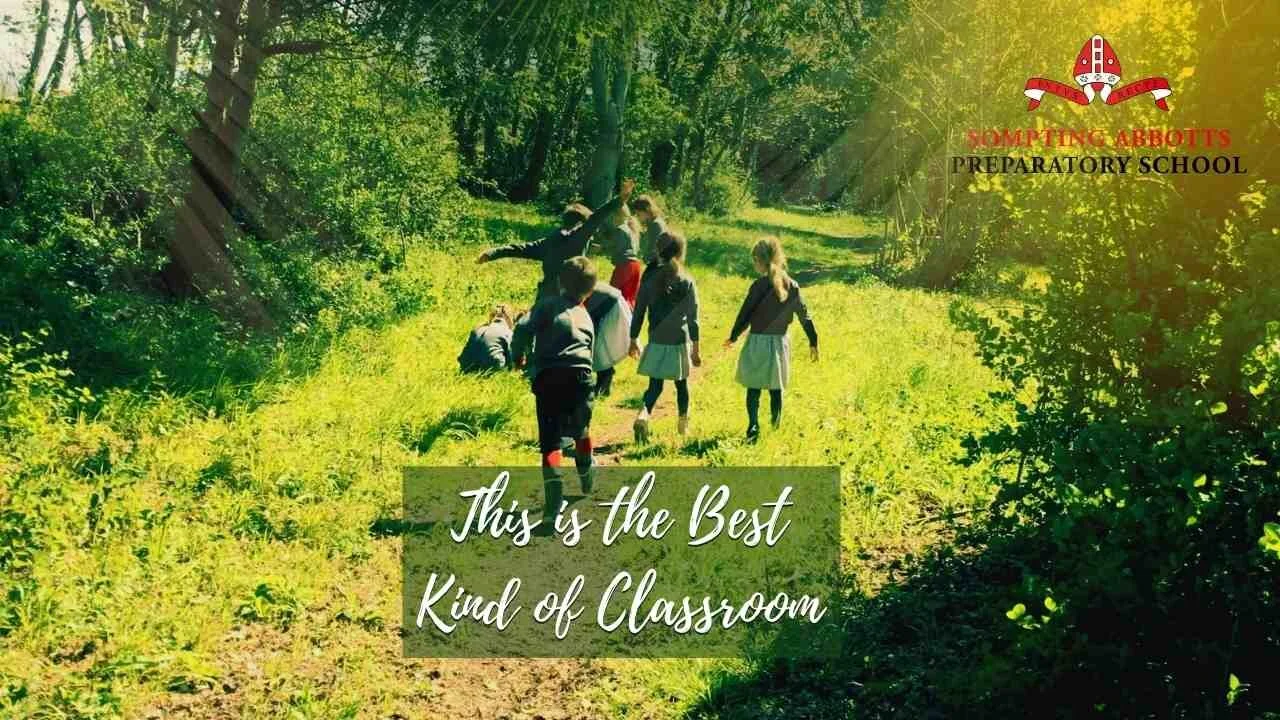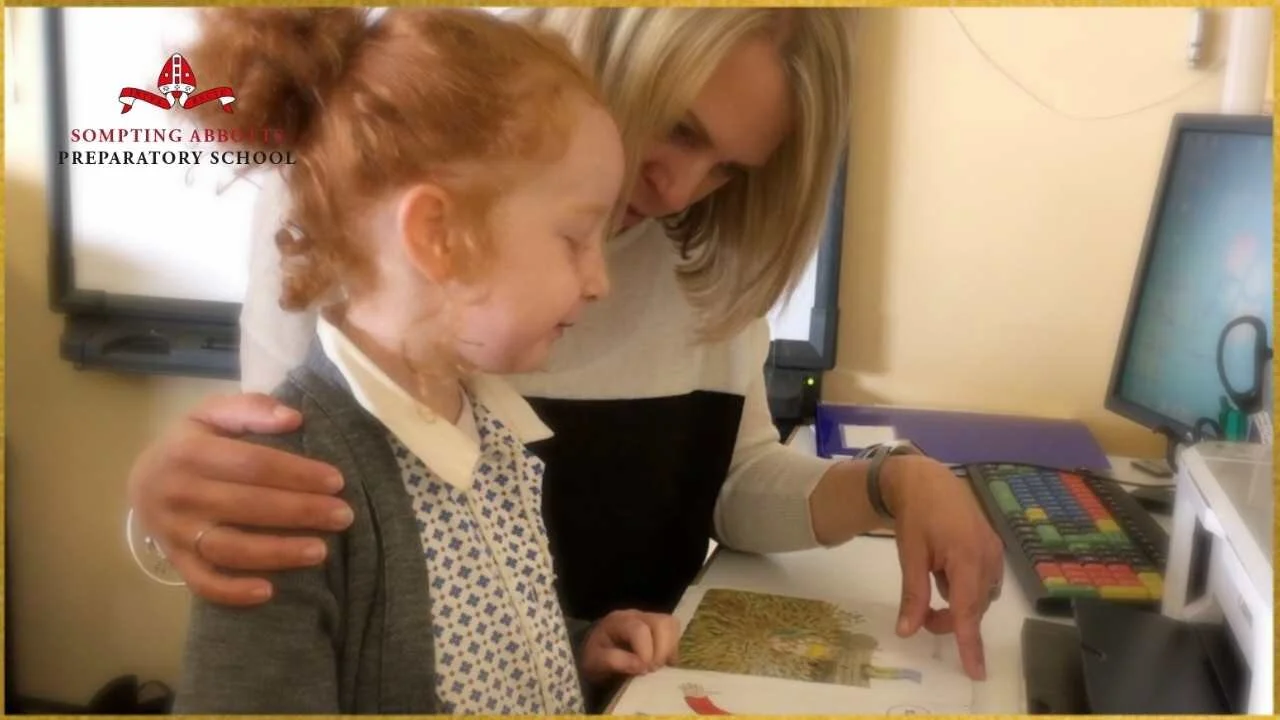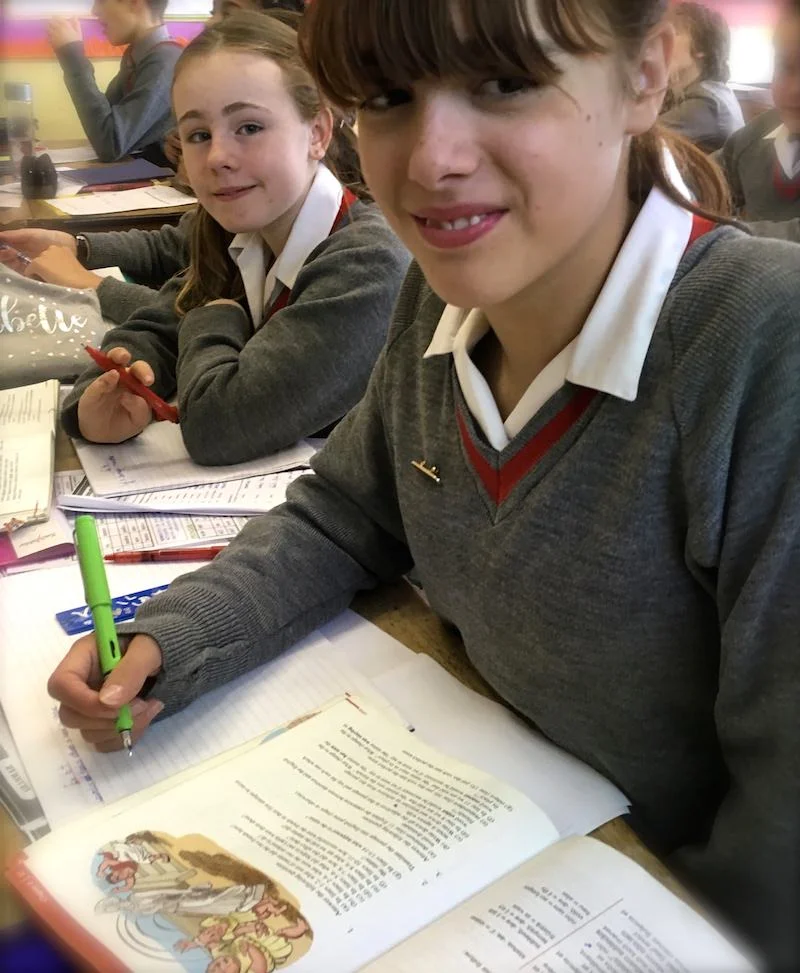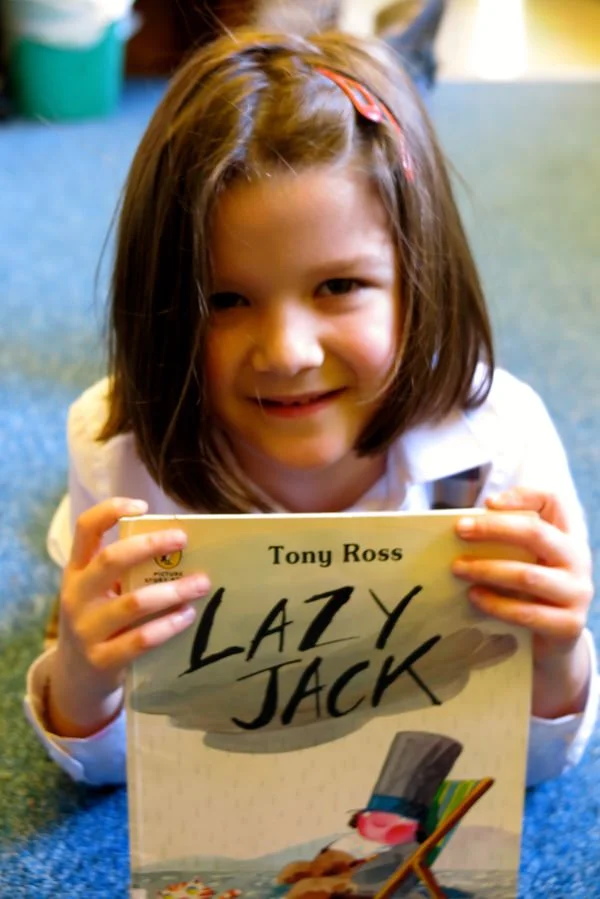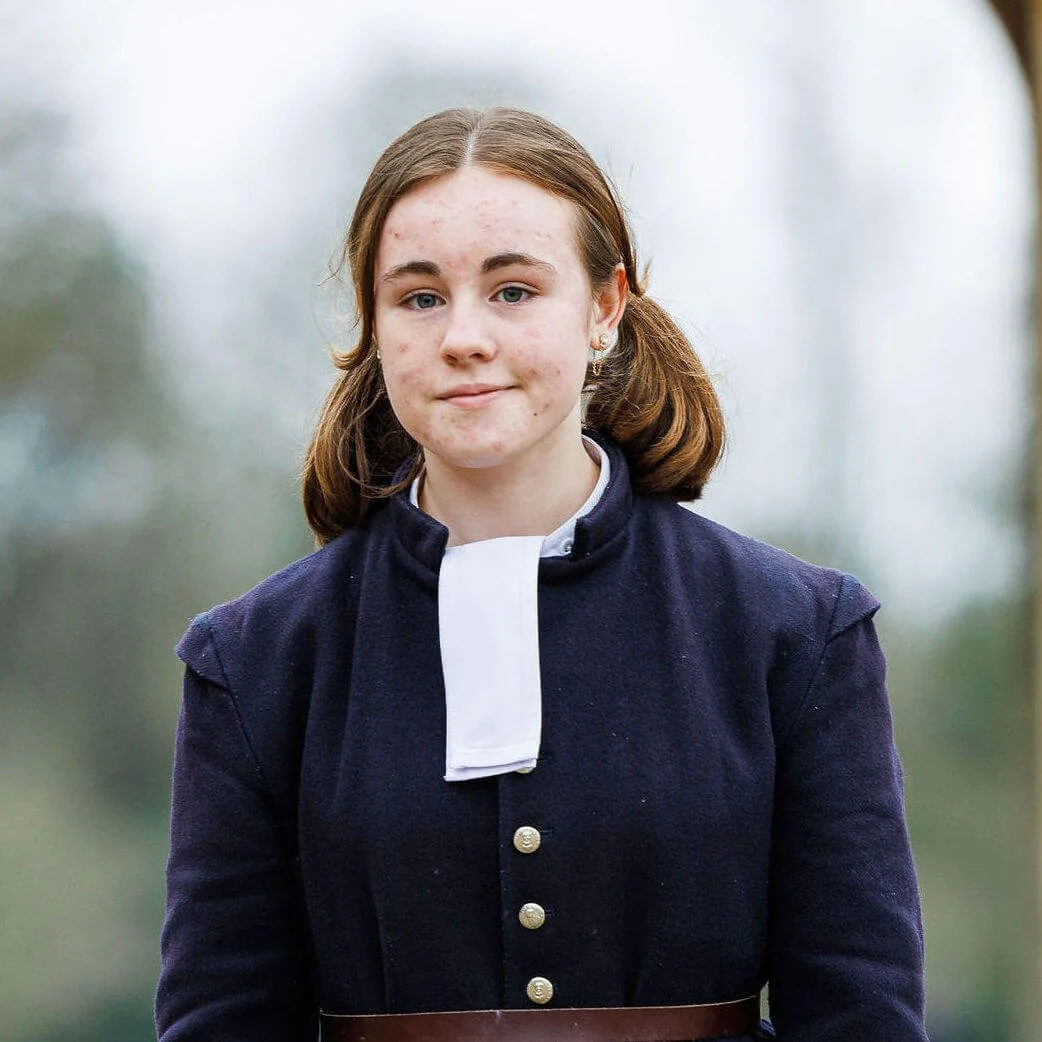10 reasons why learning sports for children is more than one big game
/Girls celebrating a win at rounders at Sompting Abbotts
There’s a sport out there that every child (even the non-sporty ones) will love, says former Sompting Abbotts pupil Matt Richbell (pictured right), now Director of Sports at leading independent school Trinity School in Croydon.
He believes that the life lessons sports teach children go far beyond the physical benefits. They actually contribute to higher grades and academic success too. They'll also be useful to them later in life in the workplace.
So will your child be a better student and more likely to succeed in their careers if they get into sport? Matt, and many other educational experts, says definitely, yes.
There's a growing body of research that links physical activity to improvements in educational achievement. That's because sport helps children develop character and to learn important social and brain skills such as problem-solving, resilience, perseverance, confidence and teamwork.
Yet sport in the UK's state schools has been hit by funding cuts. Recent data show that independent school pupils now do almost triple the amount of sports (5.4 hours a week) compared to state school students.
“Independent school pupils in the UK do almost triple the amount of sports compared to students at state schools, new data shows. Independent schools ‘are leading the way’ in keeping their students healthy and fit, with 5.4 hours a week on average played in over 40 sports, according to the first data released on sport in the UK’s leading independent schools.”
This compares with less than two hours a week for students in state schools across all key stages, according to a Youth Sport Trust survey. Those statistics are all the more worrying given that one in five children now leave primary school obese.
The Telegraph reports that the teacher workforce census shows that the number of hours taught in PE to pupils in state-funded secondary schools plunged by more than 50,000 from 333,800 in 2010 to 282,200 in 2017.
This research, which was undertaken by YouGov, follows the launch of The Telegraph’s “Girls, Inspired” campaign to tackle a national crisis of inactivity that is especially acute among girls, shows just how much PE is valued by the general public.
“The life lessons sports teach children go far beyond the physical benefits. They actually contribute to higher grades and academic success too. They’ll also be useful to them later in life in the workplace too.”
Top 10 advantages of sports at school: Guest blog by Matt Richbell
At Trinity School we have five core values that we publish around the sports department and most of them are shared by the major National Governing Bodies for sports. They remind pupils of the way we want to play our school sports. But they’re also qualities and characteristics that we feel make for being a good person that’ll serve them well as they head off into the world of work. Those five are in this list, along with the five other benefits I see as the most important. I’m confident these are all traits parents would love to see in their children.
1: Getting active
There’s nothing more important than your health and being active has been proved, beyond doubt, to be one of the best ways of staying healthy. The definition of health is “a complete sense of social, mental and physical well-being”, so it is not just about your body. Sport gives you a boost psychologically and socially. For pupils it has been proven that being active gives an academic boost too. Your body circulates the nutrients it needs more efficiently and concentration levels are improved.
2: Teamwork
Sports teaches kids they won’t get anywhere on their own in life. Let’s face it. In every career, you need a team. So much of what we do in life requires us to work collaboratively and for everyone to play their part no matter what their size, shape, ethnicity or gender. This is the essence of team sports. Kids learn to get along with others and solve problems together.
Team sports can also provide a sense of identity, a feeling of belonging. At Trinity School, we have regular reunions for ex-pupils. At those, I see how often it’s those who were teammates who have kept in touch with each other. The friendships and memories you make together on the field of play can last a lifetime.
3: Sportsmanship
Sportsmanship makes kids better and more decent people. Good things come to those who congratulate others on their effort and victories. I love the fact that when Ronaldo scored his overhead kick against Juventus in the Champions League quarter final this year the Juventus fans took to their feet to applaud him for the skill that he had shown.
When I was younger there was the example of Paulo di Canio who caught a ball that was crossed for him to head into an empty net, rather than score. The goalkeeper had injured himself clearing the ball and was on the floor in agony. (On another occasion he did push a referee over so I guess he shows the two extremes of sportsman-like behaviour!)
In a very close school match recently, one of my rugby players flattened an opponent in the process of scoring a try. The next thing I saw him do was go back to that opponent to check he was ok. Play hard by all means, but play fair, do your best and appreciate that your opponent is doing the same.
4: Respect
This one’s not new and it’s as important in life as it is in sports. We should always treat people the way we would like to be treated, be it our opponents, the referee, or ourselves.
The famous Aussie sledging in cricket is something that really gets to me, especially considering how personal the attacks have become. English players say that if they sledged another player in a school match they would have been removed from the field by their coach; the Aussies say that they would have been removed if they didn’t do it. I think we have the right approach.
Children are influenced by what they see on TV. I see it (or hear it) on the cricket field today as they copy what they have seen and I have even had to stop matches to speak to the fielding team. In football matches the nicest kids can become monsters as they mimic their role models. It is up to us at the grassroots level to make sure that they understand that what they see on TV is not the best approach, but up to the Governing Bodies to sort out the senior game. Treating people with respect is like having good manners, it costs you nothing but can benefit you hugely.
Swimming lessons in the heated pool at Sompting Abbotts Prep School
5: Discipline
Sport teaches you to play by the rules, to be the best that you can be within the constraints of the game. It fosters self and collective discipline and rewards hard work. There are many examples of young men and women struggling to find their way in life, where sport provided them with an outlet, a structure in which to develop their self-control that in turn helped them to be a better, more employable person.
6: Humility
This is often an overlooked trait but one that’s vital. The New Zealand rugby team are the best exponents of this. No individual is bigger than the team as a whole. They stay in touch with their roots and give something back to their community. Believe it or not, despite being world famous and elite athletes, they still sweep out their own changing room at the end of every match or training session!
Shaking hands with your opponents, the referee and the opposition coach after each game is a simple way of showing some humility. Win or lose players should behave in the same way as they thank their opponents for the game.
7: Resilience
Every pupil deserves the opportunity to represent his or her school and to experience the exhilaration of a hard fought victory or the heartbreak of a narrow loss. Considering the age of those that I coach, I feel that it’s often the losing that teaches the best lessons.
Children running the 100-metres at Sompting Abbotts
Children need to learn that they cannot always come first and how to deal with the emotions surrounding that. We often hear top level coaches saying that they learn more from a loss than a victory. Failure is never final. A mistake or loss is an opportunity to learn and improve. Your child’s ability to bounce back is really important in life as it’s going to be full of knocks. But sport is full of stories about great comebacks, encouraging you to never give up.
When coaching I often make situations that are impossible to overcome or at least are a significant challenge. Success at something is obviously a good motivator but those ‘speed bumps’ help you analyse, pick the best path and get back on the bike when you have fallen off. The phrase that’s often used by people faced with a challenge is 'I can’t do it'. Sport encourages you to add the word 'yet' at the end of that sentence.
“Sport in the UK’s state schools has been hit by funding cuts. Recent data show that independent school pupils now do almost triple the amount of sports (5.4 hours a week) compared to state school students. ”
8: Problem-solving
Sportsmen and women often have to adapt to rapidly changing situations, to weigh up their options and make a final decision. The benefit for children from developing their problem-solving skills transcends sport. These kinds of problem-solving skills have countless applications beyond sports. They give kids a skill-set they’ll use for the rest of their lives.
A Sompting Abbotts pupil enjoying rounders
9: Sheer enjoyment
In many ways having fun is the most important thing. Through sport everyone can experience exquisite moments of magic that they remember forever. I feel that sometimes we forget to have fun and therefore miss out on the psychological benefits of laughing and smiling. Sport can be kids’ route to those precious endorphins.
Pre-Prep sports at Sompting Abbotts School
10: Play
You could group this with enjoyment but I think it’s a big enough element to include on its own. We all, no matter how old we are, need a chance to ‘play’. Whether it be as a stress release or as a way of reinforcing bonds with family members. Play takes us back to one of our primary needs. Sport is a fantastic vehicle for this because, particularly with recreational sport, there are few boundaries and countless opportunities.
Meet Matt Richbell, Director of Sports, Trinity School
What are your memories of Sompting Abbotts and what did you enjoy about your time at the school?
Joining Sompting Abbotts was a big change for me. I came from a state school in Brighton with big open-plan classes where I could hide and get away with not doing much work. Moving to a school with classrooms and desks in rows meant I had to adapt and knuckle down! I was good at football so I made it into the 1st XI quickly and made friends. I was a bit cheeky as an early teenager, never too far from a bit of trouble. I think they would say that I had ‘character’ but it helped me earn a place in an established class of boys. That made life more fun. By the end of the year I was keen to experience as much of Sompting Abbotts’ school life as possible and became a boarder. I was in an amazing dorm. It was so much fun: a truly fantastic experience.
“Sportsmen and women often have to adapt to rapidly changing situations, to weigh up their options and make a final decision. The benefit for children from developing their problem-solving skills transcends sport. These kinds of problem-solving skills have countless applications beyond sports. They give kids a skill-set they’ll use for the rest of their lives.”
What sports did you play?
Everything. I was in all three first teams, although I wasn’t that good at cricket. I hadn’t played it before but it turned out that I could do a decent job as a fielder. Today I wicket-keep to be involved with every ball. I had never played rugby before. My uncle taught me to dive-pass in my first year and that got me a place at scrum half. I loved it and never looked back.
What was your educational path after Sompting Abbotts?
After Sompting Abbotts I went to Lancing College. I won a place at Liverpool Uni to do a degree in Sports Science and then went to Cambridge University to do a PGCE (and played as much rugby as possible).
Tell us about your career journey in brief?
I wanted to be a sports scientist but also to travel, so teaching was my best route. I taught in a school near Harrow for three years, travelled for 18 months (I taught in Sydney and Santiago, Chile) before teaching at The London Oratory School and finally moved to Trinity School where I am now Director of Sport.
Matt (bottom left) playing rugby
How important were sports to you?
To me sport was the best thing about being a child and teenager. Back then we had the time and freedom to play; whether it was in the street, going with friends to the local park or in school. Children today are not quite as lucky; society has changed as have the distractions available. That’s why I think it’s so important that schools offer a wide range of sports activities and opportunities for pupils so that they can develop all the important skills and values I talk about here.
“The lessons sports teach children go far beyond the physical benefits. They actually contribute to higher grades and academic success too.”
Tell us about your role as Director of Sports at Trinity today.
I oversee the sporting programme at Trinity. We run 36 sports as clubs or competitive sports. I have a fantastic team and a very supportive Headmaster who all really believe in the importance of sport.
Trinity sport has really taken off in the last few years. I want to ensure that Trinity’s ethos is never one of ‘winning at all costs’. I do expect every team to strive to win but sport is about so much more: learning to lose with good grace, learning to win with humility, learning to accept decisions of umpires and referees, as well as simply enjoying all the social benefits of playing in a team. I'm determined we don't lose sight of these values.
Matt (bottom left) on an international tennis tour with Trinity pupils
I've many highlights from the eight years I have been here. I’ve attended numerous National Finals and toured foreign countries with our students for a range of sports.
You must have to stay pretty fit to teach sports! What sports do you play yourself?
School sport is a six-day week so I had to stop playing rugby a while ago. I run in fair weather, or cycle to work, to get some exercise. Summer is approaching and I love playing tennis in the sun.
My children keep me moving. My daughter is seven does gymnastics, swimming, hockey and has started playing tennis. My son is only two so he just runs… a lot! He bounces off walls and doors without feeling a thing so he’s obviously destined for the rugby field.
I’ve supported Brighton and Hove Albion since I was five and have experienced the highs and lows of sport with them. This year has been fantastic. The England rugby team is the only other team I will drop everything to watch (given the chance) but as my wife will tell you, I'll watch any sport in my free time!
“Sportsmanship makes kids better and more decent people. Good things come to those who congratulate others on their effort and victories”
Not all children are ‘sporty’. What can be done to encourage those who aren’t and should they be?
The beauty of sport is that there are so many choices with such a variety of levels. I firmly believe that there’s a sport out there for everyone, you just need to find it. A school’s responsibility is to provide a broad curriculum so that pupils can hopefully find the sport or activity they’ll continue with as part of a healthy lifestyle. The key is to make it fun for them. Feeling good about something is the best motivator and if you establish good habits at school they’re more likely to continue as an adult.
What do you think about the value of sport in school?
Independent schools do almost triple the amount of sport than state schools. Having taught in both sectors I believe those figures. I still have many contacts in state schools and unfortunately it seems that PE and extra-curricular sport is being eroded because of the pressures of league tables and budget cuts. It’s meant to be a protected subject but that’s not the case at the moment.
It's only the independent sector that can consistently provide a wide range of regular activities. I really believe that the government has a short-sighted approach that will come back to bite them when the health of the nation slips, not to mention many of this generation missing out on all of the values and benefits I’ve written about here.
“There is a growing body of research that links physical activity to improvements in educational achievement. Sport helps children learn important skills such as problem-solving, resilience, perseverance, confidence and teamwork.”
Sport, not just in schools, helps to keep people healthy. It also gives people something different to do socially. It helps people become more rounded individuals with the confidence to express themselves. Teamwork, leadership, courage, discipline, respect, ‘healthy body, healthy mind’… sound familiar? Sport helps people to be better individuals, be better academically and socially. It helps society be a better society. The Olympics in 2012 showed that sport can make us all feel good.
So, what do I think about the value of lots of sport in schools? Quite simply, I think it’s essential.










